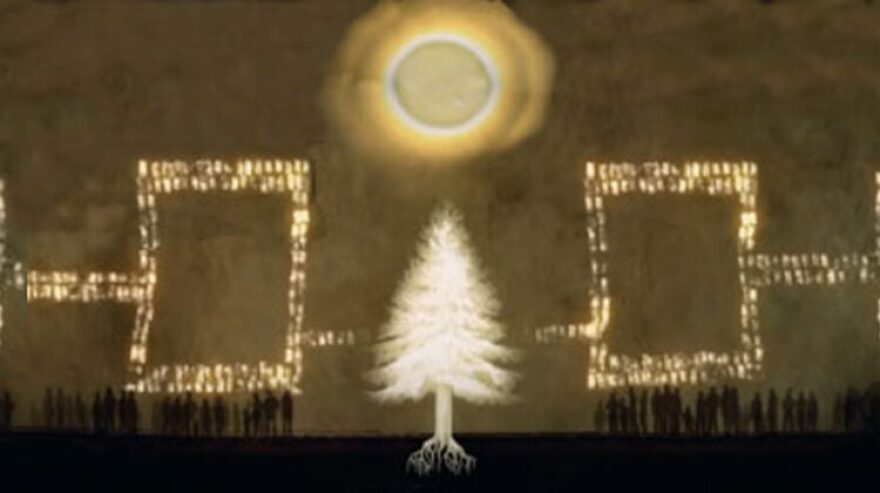A Haudenosaunee story traces their origin back to a solar eclipse.
Onondaga Nation Council Member and teacher at the Onondaga Nation School Bradley Powless spoke with WRVO's Ava Pukatch.
Interview Highlights
On a story of beginnings
In our beginnings we were in a constant state of war and anger between us and it made our Creator very sad. And so what he did or what our Creator did is he sent down a messenger to us to remember his teachings again, teachings of being peaceful toward each other.
And so this messenger came. And because there was so much hatred and animosity between us, there was hesitancy. And so we talk about how the Peace Maker had to overcome these obstacles. So when he went to the Mohawk people, one of the things that the Mohawk people did to test him to see if his words were truly sent by the Creator, is they cut him over a ravine, over a waterfall to see if his words were strong and if his words were true, if he truly was sent by the Creator. And he was.
On how an eclipse led to unification of the Haudenosaunee
As the Peace Maker makes his way across the Haudenosaunee he ends up with the Seneca. And the Seneca aren't able to come of one mind of joining the peace. That's when he tells them that there's going to be a sign in the sky. That's when we talk about the eclipse happening. All these symbols lead to a big, strong force to convincing all of these nations to join together.
Then one of the last things that he has is he makes a canoe made out of stone, and everyone thinks this canoe will not float. But the stone canoe is able to go across the lakes. And even though there's forces against him to try to stop, his canoe doesn't stop as he uses his power of song to overcome the evilness around.
And looking at and setting the peace, we threw all our weapons of hatred and anger against each other underneath a tree of peace — of a white pine tree — and washed that feeling a hatred amongst the five nations away. And then on top of that tree, he placed an eagle to watch out for any dangers. If there's any dangers to the Haudenosaunee, the eagle will come and warn us.
On passing down stories orally
So we're talking about a time, you know, some historians, have placed it around 1142 A.D. This is all orally handed down, talking about how people who were doubtful believed in it. You're talking about some people just changing their minds from war to peace because of the symbol, this sign they saw in the sky. We acknowledge that these things are happening and and we're always giving thanks to our sun. And so those kinds of thing, when those happen, we take note and again, we remember back to our origins. It's another way to remember back to our origins.
On what the April 8, 2024 eclipse will mean
It is going to be a special moment. It's such a good reminder about this beginnings that we had and having those beginnings. We're still here. That's pretty cool. And it makes you feel like we're going to be okay, even if —because of all these times there's been hard times in our people's past and we're and we're still here. So that's a good sign.








